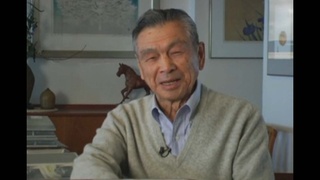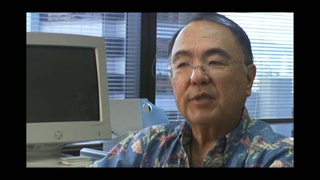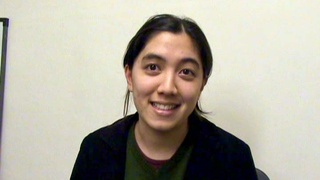Interviews
Parent’s Marriage
When my dad turned 21, I believe, his father said it’s time for you to be married. So he sent a letter back to Japan and said find him a bride. And my mother who was in nursing school got a letter from home saying, come home, you’re going to be married.
So she had to leave her nursing ambitions and come back to Fukui in the village where they where she lived. And she was married to this man that she didn’t know.
And shortly thereafter he brought her to America. A country that, you know, she had to leave behind her family, her country, et cetera, and come to this strange place with a strange man.
And I’m sure it was very difficult for her. She never said. But what she did do, my mom was pretty inventive and resourceful, and she had him get her a dictionary, a Japanese-English dictionary, and when she got mad, made him get it. And then wherever she went, if she wanted to know what something was, she’d say, what is this? How do you say in Japanese, how do you say in English? kind of thing and that’s kind of how she learned English. So she had a pretty decent command of English after a while.
Date: May 13, 2022
Location: California, US
Interviewer: Evan Kodani
Contributed by: Watase Media Arts Center, Japanese American National Museum











